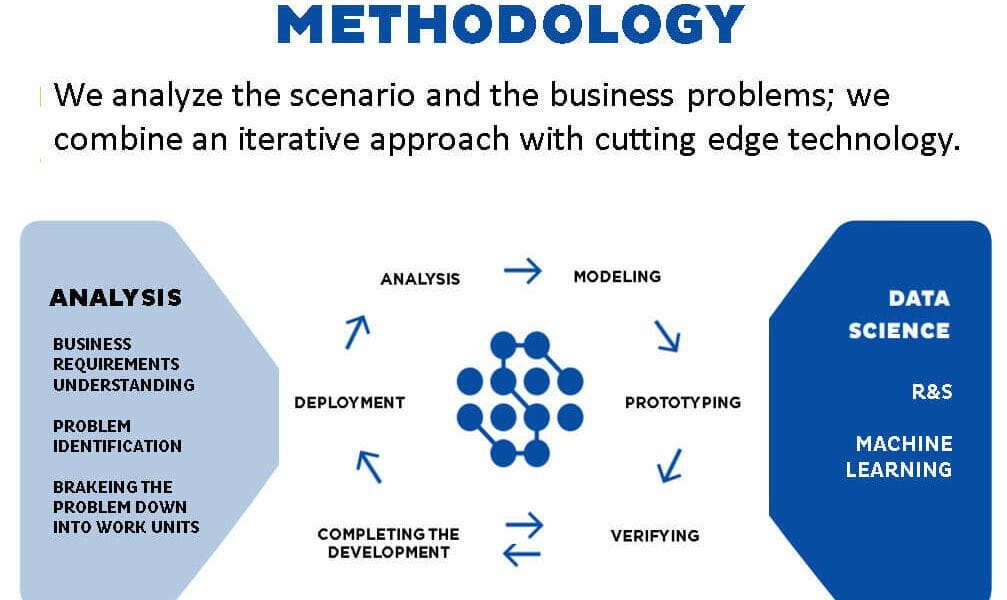Business Intelligence
Business Intelligence and Human Resources: how to use BI in the HR department
The progressive adoption of Business Intelligence (BI) systems allowed companies to implement their decisional processes, by putting corporate data resources into service of analysts and managers. In addition to more traditional BI applications, such as those used in sales, production, or marketing department, it is possible to apply corporate data to the Human Resources area, with the aim of improving
How Artificial Intelligence is transforming Fashion Industry
The so-called ‘’Fourth Industrial Revolution’’, more often referred to as Industry 4.0, is a business model in which new technologies are disrupting production and consumption models, by the hugely increased employment of Artificial Intelligence’s data and algorithms. When the concept of Industry 4.0 was born, roughly ten years ago, it was used in reference to the ‘’smart factory’’, a place
How to develop a Data-driven corporate culture
In the last few years, many companies have already adopted or have begun to approach various Analytics solutions, which allows to gain insights for operational, strategic, and tactical decisions, aiming to have a crucial advantage on their competitors. Infrastructures as Data Warehouses and Data Lakes allow to exploit a company’s data assets, making them accessible to both Business Analysts and
How to implement an effective Business Intelligence
In the recent years we assisted the rapid growth of Business Intelligence (BI) systems, which are more and more often adopted by companies that want to improve their business in several aspects. BI’s adoption has become one of the most important technological and organizational innovation that a company may pursue to improve its decision-making process and embrace a data-driven philosophy.
Enhance Data Quality through Machine Learning
Today, most industries are characterized by a relatively rapid rate of technology adoption and a fast-changing competitive environment. In this context, data become an essential instrument for decision-makers that want to take the prompt measures that the business requires. In the era of Big Data, companies accumulate a huge amount of information which necessarily need to be processed before being
The best data infrastructure for your company: Data Warehouse vs. Data Lake
The best data infrastructure for your company: Data Warehouse vs. Data Lake As we’ve seen in a previous article, a fundamental step in defining the Data Strategy of your company is the choice of the central data management architecture. This decision is indeed influenced by both the characteristic of the data you want to use for analysis, their
3 Steps for a successful Data Strategy
Nowadays, Data has become a strategic asset that companies could use to enhance their decision-making process and gain a substantial competitive advantage. But just owning data is not sufficient: you have to be able to extract value from it. In order to do that, there are several passages that you must complete that will make you use your data effectively.
Business Intelligence for Banking and Financial Sectors
Business Intelligence is fundamental for banking and financial sectors. The banking industry is becoming ever-more competitive, and subject to new regulations. Moreover, there are new and growing necessities from the clients’ side, which make Business Intelligence one of the principal means to optimize strategic activities, making them more effective. The use of Business Intelligence solutions permits banks not only to
The advantages of Business Intelligence
The main advantage of Business Intelligence resides in an improvement of business performance. The following table shows the benefits that come from a BI system, connecting them to their final goal
Business Intelligence Methodology
The methodology that we use in the implementation of Business Intelligence projects is based on an agile approach that can minimize the costs and “time to market”. The cornerstones of this methodology are: Agile Approach Just Enough Design Upfront, a slim preliminary planning which is able to achieve the project’s objectives. Just Enough Documentation, essential and effective documentation. Process automation. Where possible, portions












